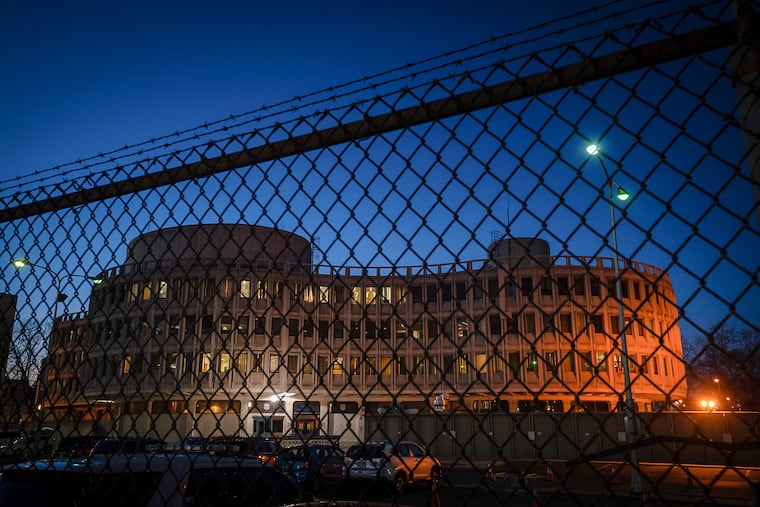Police struggle to hire officers and 911 dispatchers as homicides and shootings increase
The Police Department is struggling to find enough officers and 911 dispatchers to hire, amid a surge in violence that is on pace to make 2021 the deadliest year in history.

An Overbrook man called 911 last week after hearing breaking glass outside his house and looking out to see a teen breaking into his next-door neighbor’s car, then running off.
Realizing he had just witnessed a burglary in progress, the man raced to his car to give chase. Along the way, he said, he repeatedly called 911 for help — and the phone rang and rang with no answer.
Far from unique, his experience of reaching for help by dialing 911 — to no avail — is being played out across the city as the Philadelphia Police Department grapples with a vacancy crisis among officers and 911 dispatchers.
Finding enough officers and dispatchers has been a challenge, according to department officials, as interest in such jobs declines amid calls for police reform and the national racial reckoning sparked by the death of George Floyd at the hands of Minneapolis police. In Philadelphia, city and police union officials say, the decline in interest in policing can also be attributed in part to District Attorney Larry Krasner’s stepped-up prosecution of police misconduct.
Police Commissioner Danielle Outlaw acknowledged the shortcomings at the department’s 911 call center but urged people to continue to call 911 in case of emergency — and not to hang up.
“Someone will answer the call,” she said. “It might not be on the first ring, or a second ring. And I know when you’re in crisis, or experiencing trauma, or in need of help, seconds can seem like an eternity.”
Roz Pichardo knows the feeling. She was serving meals to people experiencing homelessness in Kensington last month when, without warning, she said, a man stabbed her twice in the chest with a syringe.
“I called 911, they never picked up. I hung up and called again and then they picked up. The police came about 20 minutes later,” said Pichardo, who added that doctors ordered her to undergo medical treatment for a month to ward off infection.
She and other city residents wonder if delayed emergency response times are helping to fuel crime in a city that has seen 358 homicides and more than 1,535 shooting victims so far this year.
“They can’t even answer the phones fast enough, let alone catch the shooters,” Pichardo said. “They’re obviously putting people at risk.”
City officials say they understand the frustration.
“Our goal is to make sure that we answer these calls in a very short period of time,” said Outlaw. “However, we know there are a few factors that’s [delaying] our response time when answering these calls.”
The Police Department is authorized to employ 6,380 officers but had just 6,009 as of last week, according to numbers officials provided to The Inquirer. That means there are 371 vacancies.
The department is authorized to have 353 dispatchers but had just 252 as of last week, the department said. That means there are 101 vacancies.
To ease the shortage of dispatchers, Outlaw said, the city has been requiring mandatory weekend overtime shifts. “But we know that’s a Band-Aid approach,” she said.
“We’re definitely at critical numbers,” Outlaw said during Mayor Jim Kenney’s biweekly gun-violence meeting last month. Officer vacancies, she said, are being driven by attrition, coupled with increasing numbers of officers retiring early or going on long-term injury status.
Current and prospective officers may also feel a chilling effect from renewed scrutiny of law enforcement across the nation after the death of George Floyd and other Black men at the hands of police.
“It’s very difficult to speak with certainty as to if that is contributing to our folks leaving,” said Outlaw. “But I will tell you, it’s a very real concern that I have heard from officers that are still here,” she said. “There is a lot of anxiety around, ‘What will happen to me if I do,’ or, ‘If I make a mistake,’” she said.
In Philadelphia, Krasner’s office has made it a priority to prosecute police misconduct.
Krasner’s spokesperson, Jane Roh, said more than 50 officers have been criminally charged by the District Attorney’s Office during his tenure. That number is consistent with prosecutions by his predecessors, she said. The difference, she said, is that Krasner has filed charges in more serious cases, including excessive force and perjury.
Fraternal Order of Police Lodge 5 spokesperson Mike Neilon attributed declining interest in careers in policing in part to how the nation responded to the fallout from the Floyd case and others.
“We are headed toward a critical shortage,” he said, adding the pandemic contributed to diminished interest in law enforcement work, along with the requirement that Philadelphia police officers live in the city.
Finally, he said, “People aren’t running to sign up to be a police officer because the job is incredibly dangerous, and the competition from other big-city departments and suburban departments is stiff.”
“We’re playing catch-up to other large police agencies,” said Neilon. “The department has to be careful. There’s no room for error in getting the best men and women to serve our city, who understand big cities and working in an urban environment.”